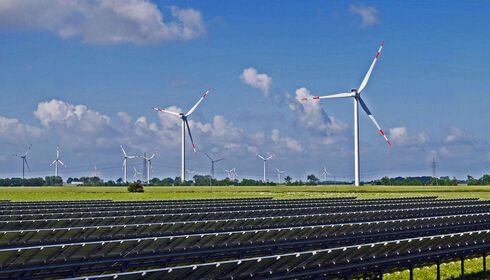
Energy faces a ‘trilemma’
31 January 2023

A common theme on the Site-Eco blog is that the transition to alternative greener energy sources must be done in a controlled and measured way, with fossil fuels being phased out gradually. This will allow new technologies to be developed and scaled up, while maintaining energy security in the wake of global disruption and economic shifts.
BP’s latest Energy Outlook survey for 2023 explores key trends and uncertainties surrounding the energy transition out to 2050 and discusses three ‘what if’ scenarios that have been updated to take account of the Russia-Ukraine war and the passing of the Inflation Reduction Act in the US, which offers funding and incentives to accelerate the domestic transition to a clean energy economy.
BP’s chief economist, Spencer Dale, said: “Global energy polices and discussions in recent years have been focused on the importance of decarbonising the energy system and the transition to net zero. The events of the past year have served as a reminder to us all that the transition also needs to take account of the security and affordability of energy. Any successful and enduring energy transition needs to address all three elements of the so-called energy trilemma: secure, affordable and lower carbon.
“The events of the past year have highlighted the complexity and interconnectedness of the global energy system. The increased focus on energy security as a result of the Russia-Ukraine war has the potential to accelerate the energy transition as countries seek to increase access to domestically produced energy, much of which is likely to come from renewables and other non-fossil fuels,” he added.
“But the events also show how relatively small disruptions to energy supplies can lead to severe economic and social costs, highlighting the importance that the transition away from hydrocarbons is orderly, such that the demand for hydrocarbons falls in line with available supplies.”
The three scenarios include Accelerated and Net Zero, which explore how different elements of the energy system might change to achieve reductions in carbon emissions by 2050 by around 75 per cent in Accelerated and by over 95 per cent in Net Zero. Both scenarios assume a significant tightening in climate policies globally. Net Zero also includes a shift in societal behaviour and preferences to further support gains in energy efficiency and the adoption of low-carbon energy.
The third situation, New Momentum, is designed to reflect the current broad trajectory of the world’s energy system. In doing so, it places weight on the marked increase in government ambitions and pledges for decarbonisation that have been seen in recent years. In this scenario, global carbon emissions peak in the 2020s and by around 2050 are around 30 per cent below 2019 levels.
The report states that, despite a marked increase in government ambitions, CO2 emissions have increased in every year since the Paris COP in 2015 except 2020. It adds that the scale of the decarbonisation challenge suggests greater support is required, such as the US Inflation Reduction Act, including policies to facilitate quicker permitting and approval of low-carbon energy and infrastructure.
And while the Russia-Ukraine war has increased demand for domestically produced renewables and other non-fossil fuels, it also highlights the need to maintain secure energy sources. The report forecasts oil demand declining, driven by falling use in road transport as vehicle efficiency improves and the electrification of road vehicles accelerates, but even so, BP sees oil continuing to play a major role in the global energy system for the next 15-20 years across all three ‘what if’ scenarios.
The report states that recent energy shortages and higher prices highlight the importance of the transition away from hydrocarbons being orderly, such that the demand for hydrocarbons falls in line with available supplies. Natural declines in existing production sources, it states, means there needs to be continuing upstream investment in oil and natural gas over the next 30 years, including in Net Zero, helping to accelerate the energy transition.
The report also stresses the need to develop non-fossil fuel energy sources, such as low-carbon hydrogen, modern bioenergy and carbon capture use and storage. It says that the growth in wind and solar requires a significant acceleration in the financing and building of new capacity.
bp’s report obviously discusses global decarbonisation on a macro level and suggests the scale of the challenges involved in addressing the ‘trilemma’ it identifies. In that regard, the need for quick and collective actions by governments in outlining a coherent route towards Net Zero is urgent.
However, on a micro level it is encouraging that many innovative products and technologies are already being rolled out within the hire industry, from machines using cleaner diesel engines, to equipment powered by solar panels and battery packs.
As has happened so often in the past, new technologies don’t immediately replace old ones, they complement them in a transitory process. After all, computer software hasn’t replaced pen and paper yet – and it won’t.

